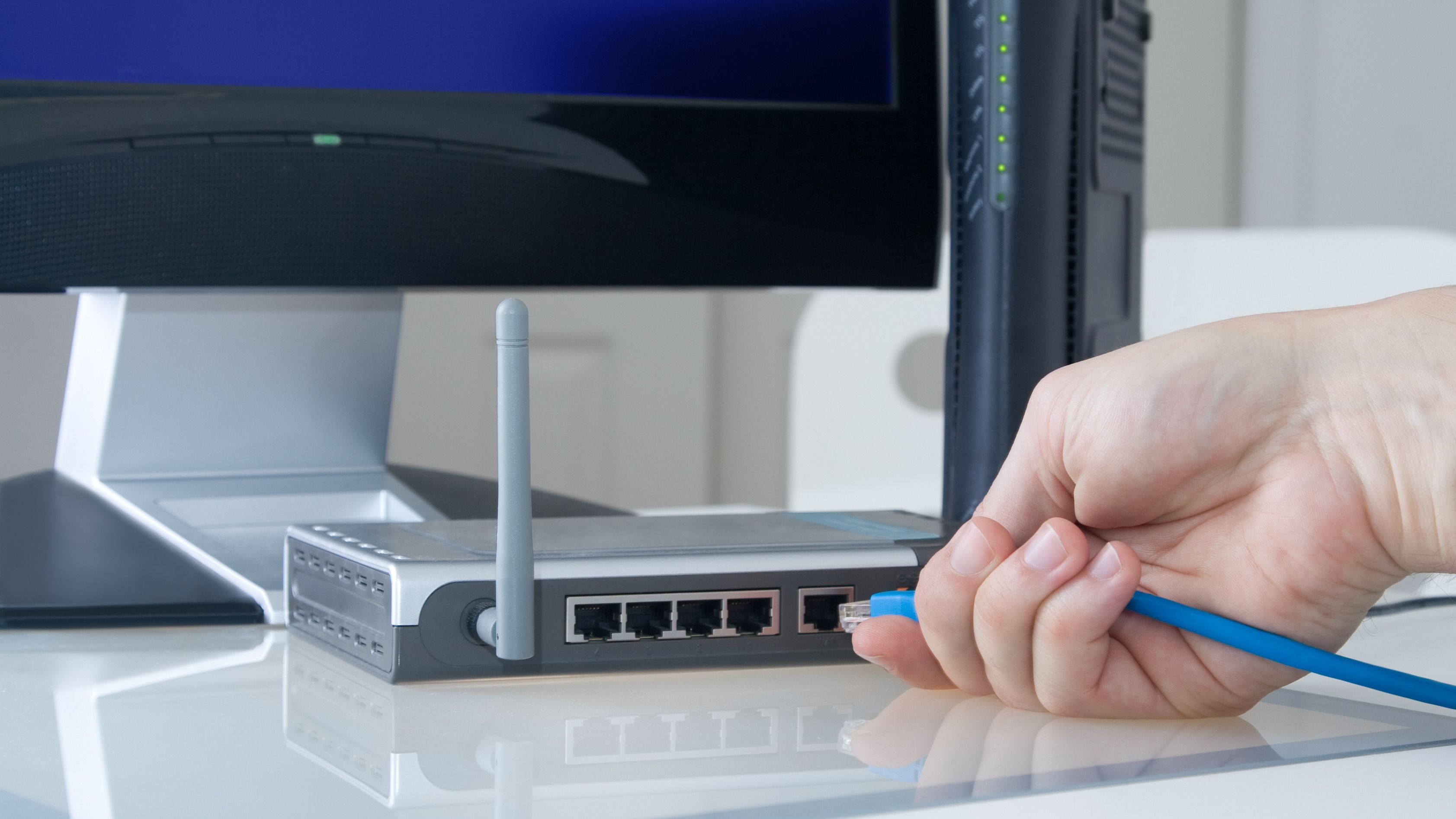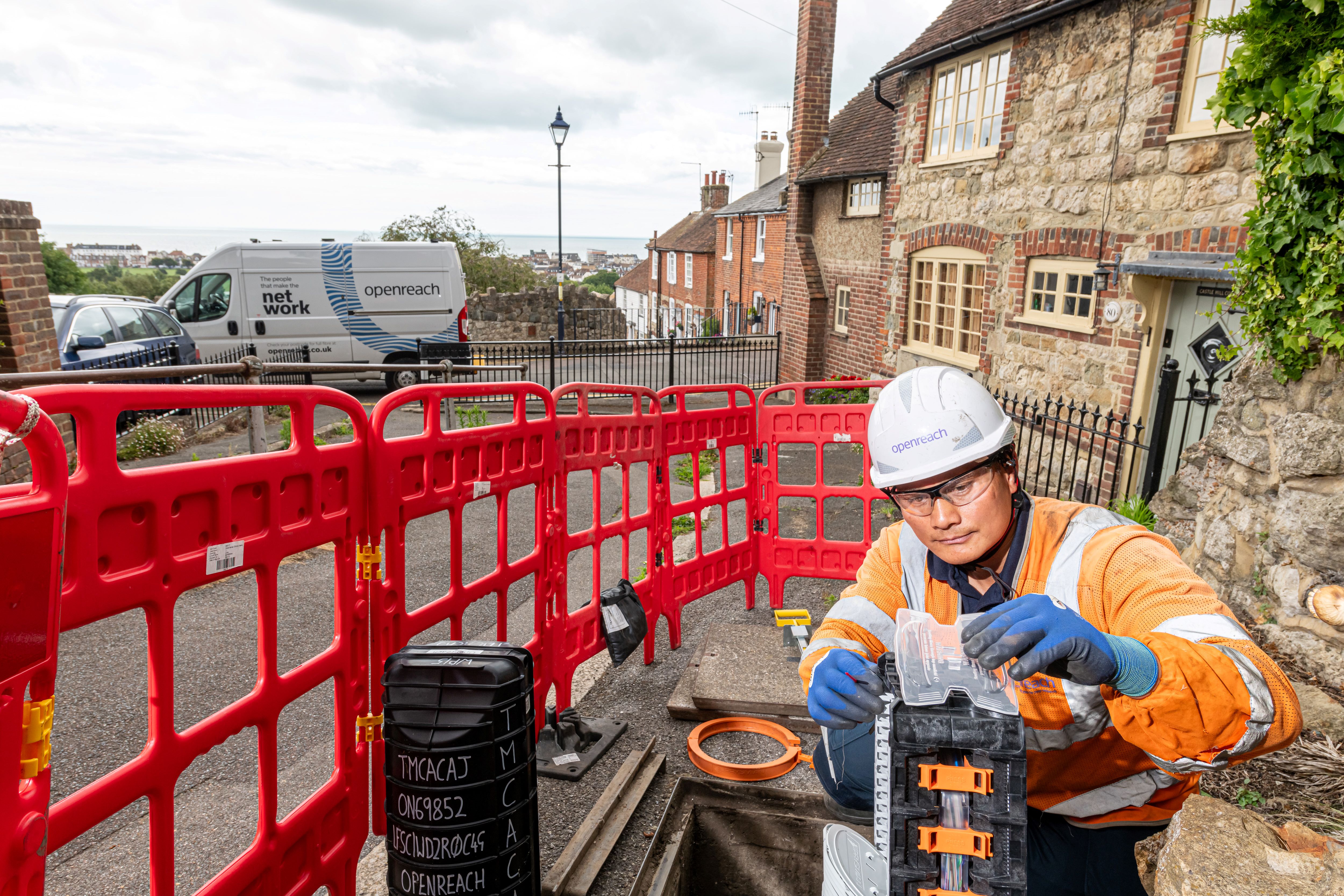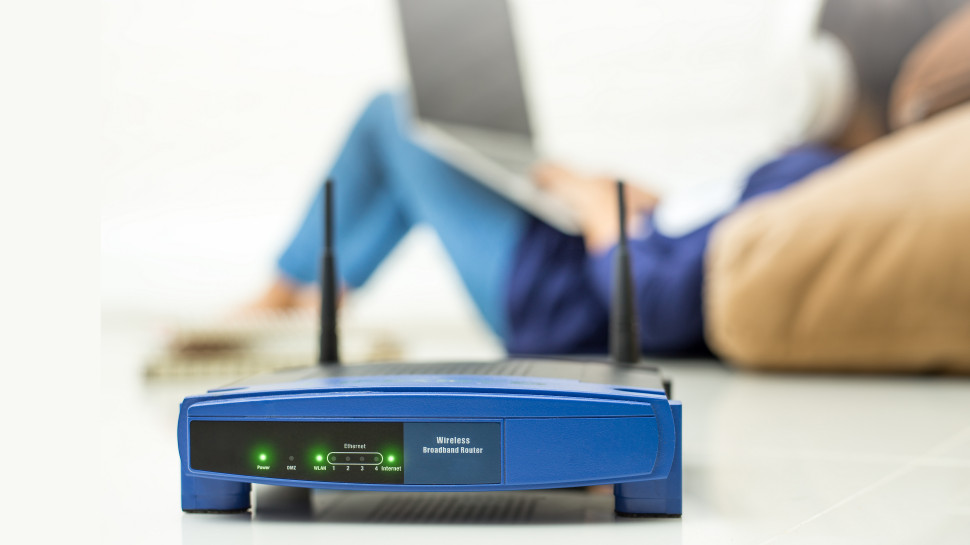What to do when your broadband goes down
Fed up with broadband outages and downtime? Here’s what you need to do…

Sign up for breaking news, reviews, opinion, top tech deals, and more.
You are now subscribed
Your newsletter sign-up was successful
Picture the scenario, you’re in the middle of an important video call and suddenly the sound cuts and you get the buffering sign of doom - and then the realisation hits that you know your internet has gone down.
Needless to say, such a situation can be incredibly frustrating. However, you can at least take a crumb of comfort in knowing that it happens to pretty much everyone at some point. Even if you’re on one of the fastest or best broadband deals around, an internet outage is likely to be something you’ve endured at one time or another.
That said, if your broadband is suffering from outages regularly, or you aren’t sure what to do to get back online quickly, there are different steps you can take to help get these downtime issues resolved, or at least mitigate them a bit.
So to find out more, be sure to read on as in this guide we’ve covered everything from common questions like ‘what causes broadband outages’ to the different approaches you can try to get your broadband up and running again.
What are broadband outages?
In simple terms, a broadband outage is when your internet service provider’s (ISP) network has an issue and it cuts off your connection. More often than not, you simply won’t be able to get online, but occasionally you can have slower or intermittent internet access.
These tend to affect smaller areas (e.g. a section of a town/city) rather than nationwide. Although this can sometimes happen as customers of Virgin Media found out once in April 2023. In some cases, an outage can even be localised to a specific problem with your property.

How often do broadband outages happen?
Broadband outages happen a little more often than you might think. According to an article from ISPreview that looked at a study by Uswitch, as many as ‘21.7 million people experienced “broadband outages” of 3 or more hours over the last year – double 2022’s figure of over 11m’. The same study also found that major cities were the main hotspots for internet downtime issues.
Sign up for breaking news, reviews, opinion, top tech deals, and more.
What causes these outages?
There are several smaller causes of outages, but if we look at these on a top-level basis, the three most-common reasons are:
- High traffic volumes - if there are lots of people online at once using a lot of data on a network it can cause the network to slow down or shut down while it processes all the information.
- Damaged cables - if the cables that supply the internet to an area get damaged (be it by weather, wear and tear or vandalism) it can either stop or limit the data they are sending, which then affects your connection.
- Domestic hardware issues - possibly the router, cabling or tech in your property that supplies your broadband is damaged or isn’t working as it should.

How long do they last?
How long a broadband outage lasts depends on the severity of the issue that’s causing it, but generally speaking they are dealt with fairly swiftly by ISPs.
For the most part, your internet will be restored within a few hours, particularly when it’s caused by high traffic and data volumes. However, any damage to cables or hardware issues can mean you’re offline for upwards of a few days while the necessary repairs are made, or while you wait to get your tech repaired.
What to do if your broadband goes down
If your internet goes down, before you start tearing your hair out, it’s worth just giving your device a restart first. If that doesn’t work, here’s what else you can do:
Use a provider’s service checker
Before you say anything, yes you’ll need to use your mobile network or another connection to do this if your internet is down, but you can look to a broadband service checker.
You can use a generic one like this from Ofcom, or use one that’s specific to your chosen ISP. Not all ISPs have these though so you might need to call its customer services, or look on any social media platforms for status updates on the network.
These outlets should be able to tell you what issues are affecting your broadband and possibly when it will be resolved.
If it’s not a network issue…
Reboot your router
If you find out it’s not a network issue, alongside turning your devices on and off, you should also try turning your router off, waiting a few minutes and then rebooting it. This can sometimes refresh it and repair the connection, or it might have just overheated a bit and turning it on and off can cool it down.
It can also help to move your devices closer to your router if you’re using the WiFi so you get a stronger signal.

Change your connection type
For those of you struggling to connect to the WiFi from your router, you should try plugging into it directly with an ethernet cable. This ‘wired connection’ can be stronger and more reliable than WiFi and might sort out your issue.
Switch to your mobile network
If it turns out that your broadband tech - be it a router or the cabling in your property - is damaged and needs to be replaced, you could look to temporarily use your mobile network.
Most modern devices will allow you to ‘tether’ to your phone’s 4G or 5G network and get you online this way. However, just be aware this will use a lot of your mobile data and it likely won’t be as fast as your normal broadband connection.
Consider switching to a new provider
You also have the option to consider your broadband package in general, especially if you’re not happy with the amount of downtime you’ve had and if you aren’t particularly impressed with how quickly your ISP resolves your issues.
So with this, if you’re nearing the end of your contract, or you want to shop around for a new deal to switch to in the future, check out our guide to the best broadband deals and you’ll be able to get a better understanding of what’s on offer right now.
At the same time, feel free to use our widget below. Simply put your postcode into it and we’ll show you all the best tariffs and packages that you can get in your location.

Rich is a freelance copywriter and content strategist with over 10 years' experience. His career has seen him work in-house and in various agencies, producing online and offline content marketing campaigns and copywriting for clients in the energy industry.